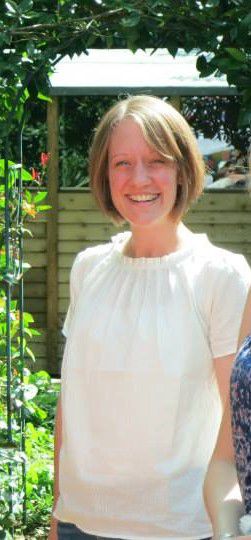
Invited talks
Fancourt, A. (2019). From research to practice: making effective use of evidence to inform and underpin pastoral programmes in school. Canford School Deputies Meeting, Canford School
Fancourt, A. (2018). What are the challenges inherent in translating neuroscience research into educational practice? Haberdasher Aske School for Girls Teaching and Learning Conference
Fancourt, A. (2017). What is the value of neuroscience to education? PSB Conference, Queen Anne's School
Fancourt, A. (2017). What can we learn from neuroscience and psychology? North Bridge House School Staff Development Day
Fancourt, A. (2014). Do the cognitive impairments observed in children with neurodevelopmental disorders impact upon the way that novel musical information is processed? Cambridge Music and Science Seminar Series, University of Cambridge, UK
Publications
Burgess, L.G., Riddell, P., Fancourt, A. & Murayama, K. (2018). The role of Social Contagion in Influencing Child and Adolescent Education: A Review. Mind, Brain & Education
Harrington, J., Beale, J., Fancourt, A., & Lutz, C. (in prep). The BrainCanDo Handbook of Teaching and Learning: Practical Strategies to bring Neuroscience into the Classroom. Routledge.
Lima, C.F., Brancatisano, O., Fancourt, A., Mullensiefen, D., Scott, S.K., Warren, J.D. & Stewart, L. (2016). Impaired socio-emotional processing in a developmental music disorder. Nature, Scientific Reports volume 6, article number: 34911
Fancourt, A., Dick, F., & Stewart, L. (2013). Pitch-change detection and pitch-direction discrimination in children. Psychomusicology: Music, Mind and Brain, Vol 23(3), 73-81
Mullensiefen, D., Harrison, P,. Caprini, F., & Fancourt, A. (2015). Investigating the importance of self-theories of intelligence and musicality for students' academic and musical achievement. Frontiers in Psychology (6), pp.1-14
Mullensiefen, D., Harrison, P., Caprini, F., & Fancourt, A. (2018). Mindset and Music. Impact journal of the Chartered College of Teaching (2), pp. 43-46
Tibke, J. (2019). How can schools become involved in and influence research? In The Brain and Teaching: a cautious guide. Sage.
Over the last 20 years there have been huge advances in the fields of psychology and neuroscience that have led to increased knowledge about the brain, how it develops through childhood and adolescence, how learning happens and the impact of stress and the environment on this process. My background is in psychology research and for the past 5-years I have worked with BrainCanDo to facilitate meaningful partnerships with academic collaborators to bridge the gap between knowledge emerging from psychology and neuroscience and educational policy and practice. I very much hope to share some experiences of working collaboratively with experts from disparate disciplines in order to build an evidence base to inform educational practice.
It is my hope that through participation in the International Pedagogical Forum there will be opportunities to share experiences and learn from one another as we collaboratively engage with knowledge emerging from education and practice around the world. This is a chance to make global connections, engage in discussion and generate novel insights to create the best possible education for our children and young people across the world.